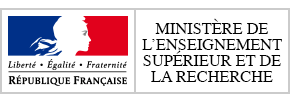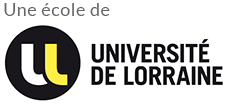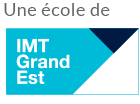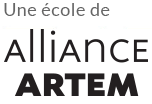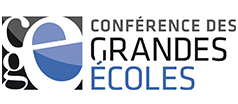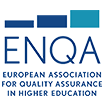About
The Master’s in Earth and Planetary Sciences and the Environment (Geoscience and Civil Engineering department), Mining Engineering and Risks pathway (STPE), draws on the driving role played by Nancy’s research laboratories, which cover the entire range of geosciences, and strong links with INERIS (French National Institute for the Industrial Environment and Risks).
Who is the course for?
This M2 course is aimed in particular at students who have completed an M1 in the field of Earth Sciences or equivalent, in France or abroad.
Skills outcomes
- STPE Master’s graduates will have learned the skills to coordinate studies on different types of terrain, plan analyses to be carried out in laboratories, obtain and formalise scientific results and produce activity reports or give feedback in the form of oral presentations,
- Analyse, synthesise and structure sets of data and results to give an unequivocal interpretation and then present it,
- Understand the cycle of water and the elements, interactions between water, air and soil as well as the parameters influencing the quality and quantity of water resources,
- Implement and independently carry out experimental approaches to respond to problems: from design to critical analysis of the results obtained,
- Engage the fundamental concepts and technologies of mineralogy, petrology, sedimentology, petrography, geophysics, geotechnics and palaeontology to deal with a problem in the field or analyse a research or presentation document,
- Identify and characterise geological objects at every scale: analyse their origins and any present activity, extract applications (resources, risks, environment, development, etc.),
- Use scientific field and laboratory equipment to locate and recognise geological formations and rocks, map, take samples and analyse them.
The STPE Master’s course syllabus covers a wide spectrum of themes with the ambition of meeting the 21st-century challenges of geoscience, from fundamental questions to more applied issues in relation to the exploration, mining and development of mineral and energy resources, through the management of water, soil and the environment.
These themes are dealt with through theory and practice (visits to laboratories, industrial sites, practical coursework, projects and field activities). The fundamental notions are applied to gain a clearer understanding of the ancient or recent history of our planet, the formation of mineral and energy deposits (exploration, modelling, evaluation, mining, recovery) and the behaviour of pollutants in soil, water and the environment in general, with the objective being the sustainable management and remediation of polluted environments.
The STPE Master’s is supported by a large group of Lorraine-based geoscience laboratories, recognised nationally and internationally, assembled within the Sciences Observatory in the OTELO (Lorraine Earth Environment Observatory).
The GeoRessources, LIEC, LSE, CRPG and LOTTERR laboratories form a strong foundation for the fundamental and applied research covered in the Master’s programme thanks to their close proximity. This foundation is consolidated at the teaching level with the participation of many researchers in both M1 and M2 programmes, the strong involvement of the ENSG and Mines Nancy engineering schools for some M2 specialisms and the involvement of multiple external contributors from the world of industry.
What are the career opportunities?
Possible career opportunities after completing the Master STPE include roles as an engineer, researcher or consultant in mining and quarrying, the mining environment and risks.
Contact
You want to contact us about the program Master’s in Earth and Planetary Sciences and the Environment, Mining Engineering and Risks pathway? Please fill in form below:


